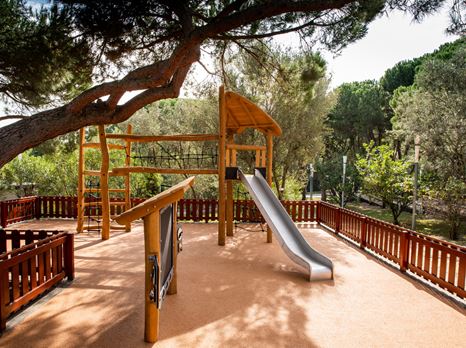
The green solution for playgrounds
Contributing to the goal of carbon neutrality in the cities
Over recent years we have witnessed unbridled expansion of cities, urban populations and technological resources, without ever stopping to reflect on this growth.
Population growth has a direct impact on the environment, society and economy.
Forestry areas have been decreasing in the midst of ongoing climate change. In this context, sustainability has been identified as the way to guarantee the well-being of future generations and the planet.
On December 15, 1972, at the Stockholm Conference, in Sweden, the UN General Assembly designated June 5 as World Environment Day.
In 2021 the United Nations has launched the campaign “Reimagine, Recreate, Restore” 1), as the starting point of taking measures to preserve the planet. The global population is as healthy as the ecosystems on which we all depend.
The Amorim group's strategy meets the initiatives promoted on this day by the United Nations. The promotion of the cork oak forest has been developed over the years, together with the forest owners, in order to guarantee the continuity of the provision of services from the associated ecosystems.
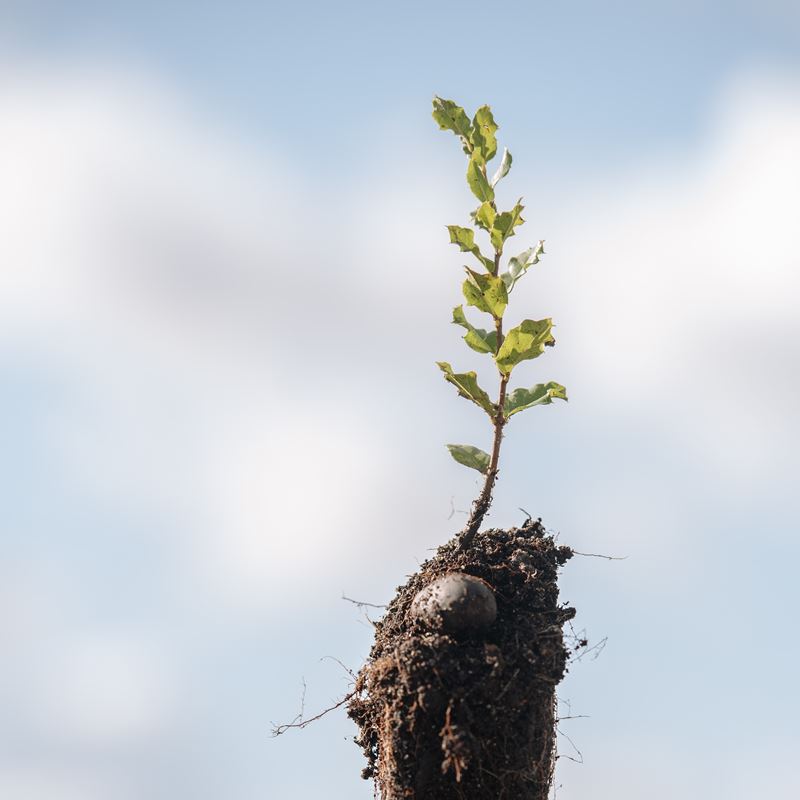
In order to improve the future of the planet, in 2015 the United Nations launched the 2030 Agenda for Sustainable Development 2).
The Agenda aims to address themes of sustainable development, to foster a common vision for Humanity, and a social contract between world leaders and peoples, on behalf of the planet.
The agenda includes 17 sustainable development goals, of an economic, social and environmental nature, which promote peace, justice and institutions.
Committed to a solid and dynamic future with sustainability as the main reference, the sustainability strategy of the Amorim group - the world’s leading cork producer - is aligned with 12 Sustainable Development Goals.
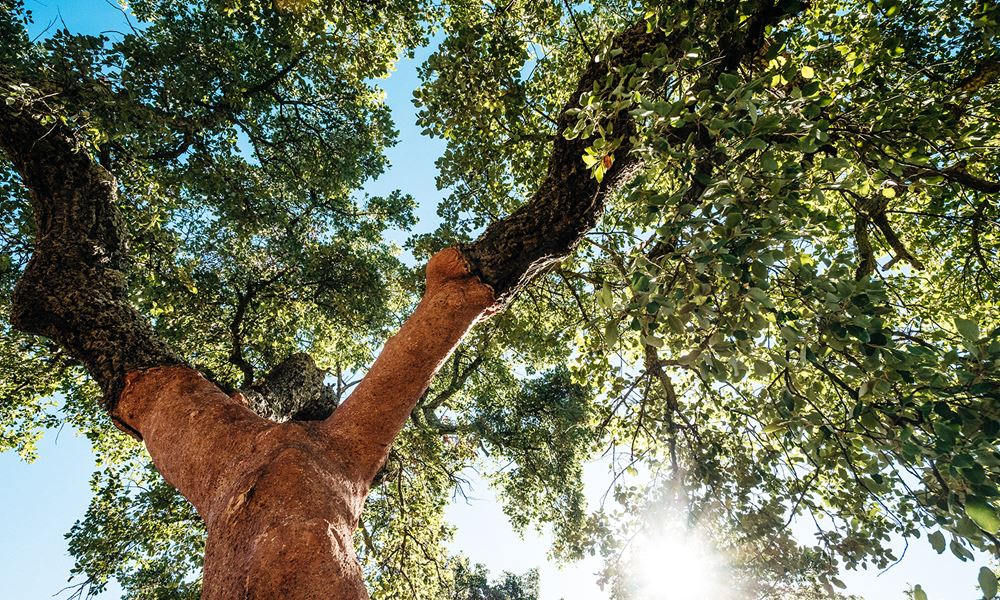
Committed to a solid and dynamic future with sustainability as the main reference, the sustainability strategy of the Amorim group - the world’s leading cork producer - is aligned with 12 Sustainable Development Goals.
Nature conservation is vital to ensure the preservation of ecosystems and biodiversity. It is only possible to conserve all species of fauna and flora and their habitats by achieving a balance between human activities and nature protection.
Cork oak forests are located in the Mediterranean region and constitute an important environmental, social and economic pillar. They support a unique and fragile ecology that is a habitat for rare and endangered species. They are the basis of one of the world’s 36 most important ecosystems for preservation of biodiversity, on a par with the Amazon rainforest, African Savanna and Borneo.
More than 200 animal species and 135 plant species find ideal conditions for survival in the cork oak forests.
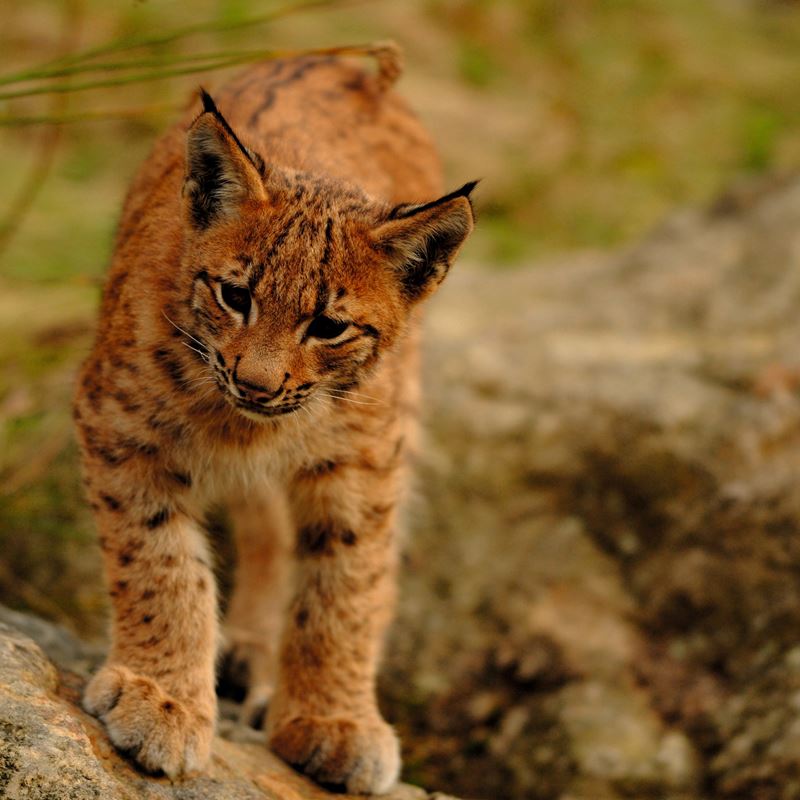
Following use of cork as a sealant, from the 18th century onwards, the cork oak forest became an important economic asset.
More than 100,000 people in Southern Europe and North Africa depend directly and indirectly on these forests. These natural spaces are a perfect example of the balance between preserving the environment and sustainable development. The fact that no tree is felled during harvesting is a unique case in terms of sustainability.
Cork oak harvesting gives rise to several branches of an economy that has a great future: it motivates a wide range of agricultural, forestry hunting and economic activities. The cork industry is the engine of this sustainable development, helping to keep thousands of jobs and people on their land.
Cork oak forests occupy an estimated area of 2.1 million hectares in the Western Mediterranean basin. These forests have recognised protection status, and make a positive contribution to climate regulation. As an engine of sustainable development, they play a crucial role in ensuring the palent’s ecological balance:
| Act as barrier against forest fires |
| Regulate the hydrological cycle |
| Protect against soil erosion |
| Reduce the risk of desertification |
About 90% of cork oak trees are located in Portugal, Spain, Morocco and Algeria: around 200,000 tons of cork are harvested annually from the world’s cork oak forests. Portugal, which has one third of the total area of cork oak trees, is the largest cork producer, responsible for almost 50% of the world production of cork 3).
It is estimated that for each ton of cork produced, the cork oak forest can sequester up to 73 tons of CO₂ 4), thereby making an essential contribution to the reduction of greenhouse gas emissions, the main cause of climate change.
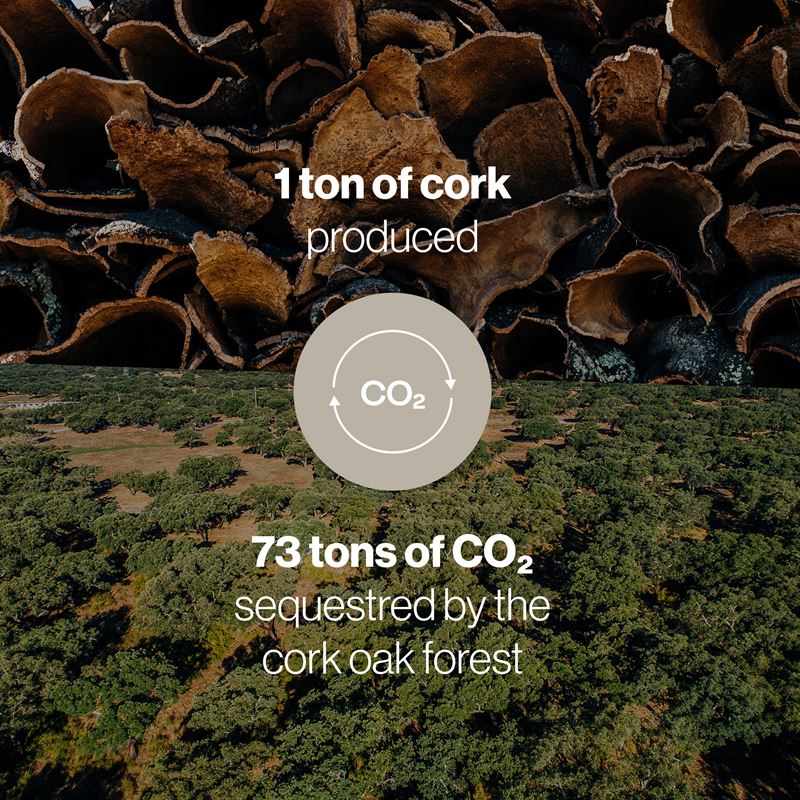
Protecting the future requires rethinking the way that we look at waste. Cork, as a raw material that can be transformed and reused, is based on the principles of a circular future, transforming what was previously considered waste into new production opportunities.
Issues related to sustainability have the potential to impact business performance, whether through regulation, stakeholder perception or by directly affecting the health and well-being of the population.
In conjunction with cork, it is possible to add production surpluses from other industries and develop new solutions to respond to the most demanding industries, enhancing the natural characteristics of this raw material, that is sustainable by nature.
Taking advantage of the motto that everything in this industry can be used, the Corkeen system, developed and produced by the Amorim group, was born as a unique and totally innovative surface for playgrounds in the markets, produced from a natural raw material - cork.
The Corkeen system is safe, complies with EN1176 and EN1177 safety standards and is accessible to anyone, including wheelchair users. Because it is a compact system, the cushioning surface does not move or spread with the wind, and ensures permanent protection against falls compared to loose material systems, such as sand, pine bark or splinter surfaces.
The system incorporates 90% natural cork, and is completely free from all types of toxins and chemicals such as heavy metals, EDC, T-VOC, formaldehyde or PAH. Even the smallest cork granules are used as a valuable energy source.
Over 60% of our energy needs are met through use of biomass (cork dust), which is a CO2 neutral source of energy.
In addition, unlike many fall protection materials, the Corkeen system does not contain plastic and rubber granules that can end up in our ecosystem and pollute nature. It thereby helps reduce the spread of microplastics.
Our children deserve a better, safer, and healthier planet. This starts with a better, safer and healthier way to play. In tune with nature, creating communities and respecting the planet. And Corkeen came to be synonymous with positivity and hope for a better future and a better planet.
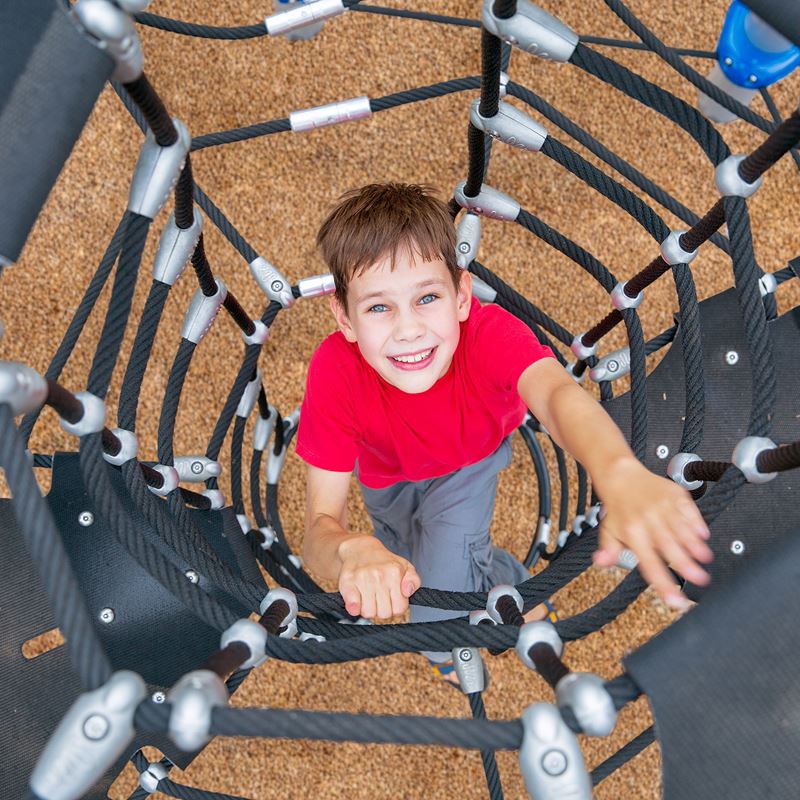

Contributing to the goal of carbon neutrality in the cities